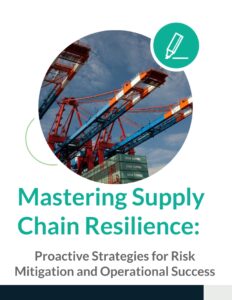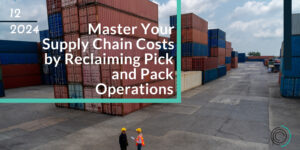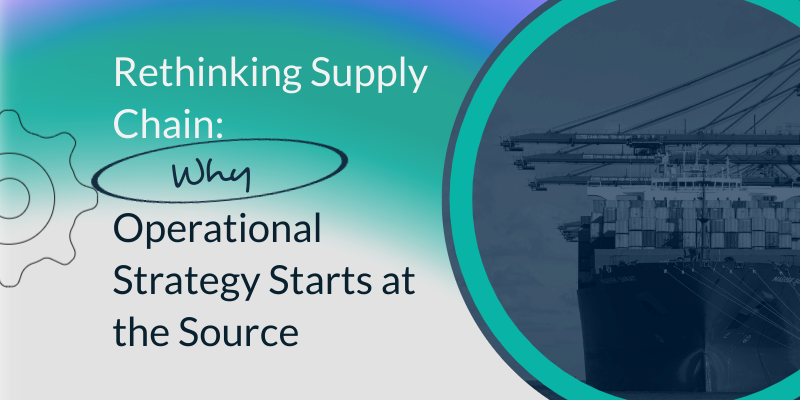Unlocking Value: How Perception Drives Consumer Choices in the World of Recommerce
How we perceive the value of an item significantly impacts our decision-making process, whether it involves purchasing a brand-new product or opting for a previously owned one. Our willingness to spend more on an item often hinges on our perception of its value. For instance, reusing a shopping bag from a store we consider high-end or expensive can enhance our perception of value, prompting us to pay more for the associated products. Conversely, the allure of bargains and deals plays a similar role in shaping our perception, making us view certain items as valuable regardless of their actual cost.
Understanding consumer behavior and the influence of perception on our decisions is crucial for any business aiming for success. This is particularly relevant in the realm of recommerce, where businesses focus on selling high-end products at discounted prices. By grasping the nuances of consumer perception, businesses can strategically position their products to appeal more effectively to their target audience, leveraging the perception of value to boost sales and customer satisfaction. Exploring the principles behind recommerce and the significance of reverse logistics in this process not only highlights the importance of perception in consumer behavior but also underscores the potential for sustainable business practices through the resale of high-quality, discounted items.
The Psychology Behind Perception and Value
At the heart of this concept lies psychology. For example, change blindness is the phenomenon where people fail to detect changes in their environment due to lack of attention or inattentional blindness. People often overlook changes in their environment because they are so close to them; this is how perception influences our decision-making process without us even being aware of it. Similarly, people often place higher value on items they perceive as expensive than those they view as cheaper; this could be due to factors such as prestige and status associated with certain brands or stores.
Recommerce – A Growing Trend
Recommerce, the practice of selling previously owned products, is becoming increasingly popular among savvy consumers who are on the lookout for quality products without the hefty price tag. Recent research indicates that a staggering 78% of customers would be open to purchasing pre-owned items online, provided there was a guarantee of quality and authenticity. This consumer mindset is perfectly logical – why should anyone pay full price when there are opportunities to snag a great deal on something that’s as good as new?
For business owners, tapping into the recommerce market is not just an opportunity; it’s a strategic move. Understanding consumer behavior towards recommerce is crucial for any business looking to stay ahead in today’s competitive market. By offering customers high-quality, previously used items at competitive prices, businesses can not only attract a broader base of price-conscious shoppers but also contribute to a more sustainable economic model by giving products a second life.
Moreover, embracing recommerce can be a significant differentiator for your business. It allows you to appeal to a growing segment of environmentally conscious consumers who value sustainability as much as affordability. In addition to expanding your customer base and growing your business, participating in the recommerce trend underscores your commitment to reducing waste and promoting a more sustainable consumption pattern.
In conclusion, the rise of recommerce presents a win-win opportunity for businesses and consumers alike. By providing an assurance of quality and authenticity, and positioning these pre-owned items attractively, businesses can seize a significant opportunity to grow, while consumers can enjoy access to quality products at reduced prices. The recommerce trend is not just a passing fad; it’s a growing movement towards more responsible and mindful consumption.
The Benefits of Recommerce
There are several benefits associated with recommerce; beyond offering customers competitively priced items there are also environmental benefits such as reducing waste and emissions associated with manufacturing new products from scratch. Furthermore, recommerce helps businesses save money by providing access to previously loved items without having to invest in new ones; this allows companies to use their resources more efficiently while still offering customers great deals on quality products. Additionally, recommerce provides businesses with an opportunity to build relationships with customers by offering them discounts or rewards for purchasing pre-owned items from them; this could help increase customer loyalty which in turn boosts revenue over time. Lastly, recommerce allows retailers to bring in another stream of income while reducing its carbon footprint.
Understanding consumer behavior and how perception affects our decisions is essential for running a successful business today; this is especially true when it comes to recommerce – selling previously used products at discounted prices while still assuring quality and authenticity for customers. By taking advantage of this growing trend businesses can save money while still providing customers with great deals on quality items at competitive prices which could lead to increased customer loyalty over time. It’s clear that there are many benefits associated with recommerce – both for businesses and consumers alike!
So what does Recommerce have to do with business operations?
I want you to think about everything as a business and you are the businessperson. Retail business operations are the backbone of any successful store online or brick-and-mortar. From buying goods at wholesale to checking out customers, the process must be efficient and seamless.
Retail Business operations are recommerce and e-commerce businesses that primarily engage in the sale of products or services over the internet through online marketplaces such as Amazon, eBay, and Alibaba, or directly through company-owned websites. Retail Business Operations also include “brick-and-mortar” stores that use a similar model of operation but sell their products through physical storefronts. These businesses generally have a presence on multiple channels (e.g., web, mobile, social media) and use technology to enhance the customer experience (e.g., personalization, recommendations). Retail Business Operations may also engage in other activities such as product fulfillment, logistics, and customer service. Retail Businesses must constantly adapt their operations to meet the ever-changing needs of customers and stay ahead of the competition.
The right technology must be in place for your team to serve customers in the most resourceful way possible. This will not only create a great customer experience, but it will also empower your team to be helpful and resourceful. A toxic corporate culture, whether you are a small business, or a large corporation will kill your business. You may think your customers don’t see or feel a toxic culture, but customers can quickly figure out a mismanaged business even when they can’t physically see it.
Investing in Human Capital: A Necessary Step for Retail Business Growth and Scale
As a business leader, you know that the most important asset of any business is its human capital. You have made an enormous effort to hire the right people—now it’s time to invest in those people and their training and development. Training and development are essential when it comes to Retail Business operations growth and scale. Here’s why.
Why Invest in Training? When you invest in your team’s training, you are investing in their capabilities. Employees who understand their roles more deeply can make better decisions faster, which translates into cost savings for your business. Furthermore, comprehensive training will give employees the confidence to take on new tasks, which makes them more valuable to the organization. Additionally, effective training programs increase employee retention rates since well-trained employees feel appreciated and valued by their employers.
The Benefits of Professional Development
Professional development is key to staying competitive in today’s retail market. By offering employees ongoing learning opportunities such as seminars and workshops, you can ensure that your team is up-to-date on industry trends, best practices, and advances in technology that could benefit your business operations. This type of enrichment will also make your team more attractive to potential partners or customers by demonstrating your commitment to staying ahead of the curve.
How to Get Started with Training & Development Programs
Before launching any type of training program within your organization, it is important to create a clear plan that outlines objectives and deliverables as well as how success will be measured against those goals. It is also critical that you ensure the program addresses both skills gaps within the organization as well as potential areas of improvement for career progression within individual roles. Finally, consider offering both online courses as well as face-to-face workshops so that everyone has access to learning opportunities regardless of their availability or location.
Human capital is essential for any business; therefore, investing in its development should be a priority for CEOs, COOs, and CFOs alike! Training and professional development programs are invaluable tools when it comes to ensuring Retail Business success through growth and scale – they provide employees with the necessary knowledge base while enhancing their capabilities at the same time! With proper planning and implementation strategies in place – these programs can help equip employees with the tools they need not only succeed but thrive within their roles! Investing in human capital means investing in success – so start building yours today!
If you would like help with your eCommerce or recommerce business, book a consultation with one of our experts today!







